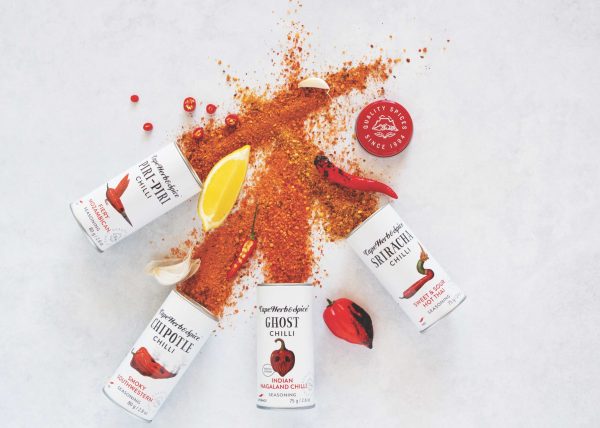60% of women said they look for sales when grocery shopping, versus just 48% of men. Could this indicate that women have the edge when it comes to shopper sophistication?
This comes from a 2021 BrandMapp survey of over 30 000 middle-class (+R10 000 household income) adults by WhyFive. The same survey shows women are more likely to use retail loyalty programmes to their advantage to bag the best deals. This could also indicate smarter shopping behaviour.
This Women’s Month, Libstar is looking at the purchasing power of women, through the lens of who makes most of the household shopping decisions. A local study by Nielsen (2019), suggests that 71% of South Africa’s 18 million women consumers are responsible for grocery shopping, with 60% being the primary purchaser in the household. It’s clear that women wield considerable influence.
“Women are inspiring caretakers and take a leading role in feeding their families. This starts with choosing which groceries to purchase.” While studies show women are sophisticated shoppers adept at spotting deals, there’s also much evidence that women want the best, especially when it comes to nutrition.
Robyn Manuel, HR Manager at Libstar
Manuel continues, “At Libstar, we’re a family-led business with the purpose of enriching people’s daily lives. In this, we share significant synergies with our women consumers. We understand the need for quality.”
Women vs men shopping behaviour:
In terms of buying behaviour, BrandMapp research suggests that the biggest difference is how savvy women are with sales. An overwhelming majority of women are sales and discount conscious.
This is certainly the experience of Libstar business leader, Katrina Sommerville, General Manager at Libstar Chamonix Spring Water. Sommerville says she does the bulk of her family’s shopping and planning, “Occasionally my partner will do a shop, but then we end up with a whole bunch of things we don’t need! He is completely oblivious to price too.”
Sommerville says she buys based on convenience and quality, “With fresh fruit, veg and meat, I will not compromise on quality. With pantry items and cleaning chemicals, I look out for specials and buy in bulk.”
Rani Bosch, General Manager of Ambassador Foods, a member of the Libstar family, echoes Sommerville’s sentiments, “With things like nappies for babies, I shop wherever the special is. When shopping for groceries, I always keep an eye out for specials.”
Loyalty matters
Another insight from BrandMapp is that women are significantly more likely to take advantage of major grocery retailers’ loyalty programmes. Across six of South Africa’s biggest retailers, female members outnumber men. Women (69%) also use these programmes more ‘knowingly’: 69% say that it affects where they choose to shop (compared to 59% of men), and 45% believe it makes a difference to the products they buy (vs 35% men). This nods to women’s more mindful approach.
Ingrid Uys, General Manager for Montagu Foods, a member of the Libstar family, says she feels like a lottery winner when she gets her loyalty rewards right, “I do like a good special, e.g., buying two for the price of one/ buy 3 and get the cheapest free, etc. And I have to say, I feel like the lottery winner when I see my total bill decrease after I swipe my rewards card at a retailer.”
The mindfulness of moms
Nielsen research suggests that motherhood moves women from being ‘selfish spenders’ who occasionally impulse-buy personal luxuries, to ‘conscious spenders’ who put the needs of their family first, spend mindfully, and seek trusted products.
Liana Weideman, General Manager at Cape Coastal Honey, another member of the Libstar family, is a new mother, which she says has changed her buying behaviours, “My baby is still incredibly young and therefore quality, type of ingredients and availability is especially important. The ingredients need to be mostly in their natural form with no added GMOs, soy, preservatives, or fillers. We will go without an item if I am not 100% convinced that it is safe for my baby to have and use.”
Anna Olivier, co-founder of Umatie, a growing baby-food brand and Libstar’s first acquisition as part of the Libstar Nova incubator project, says she never compromises on quality when it comes to her children, “I look for health and quality, and buy food that’s in season or ethically sourced. I also tend to shop for the kids first and look after their requirements before my own.”
So, are women the more mindful shoppers?
Evidence suggests they might be, but every home has its own dynamic. What is a fact is that women are – chronically underestimated – economic powerhouses with considerable market influence.
*In BrandMapp’s middle-class sample group, the percentage of men and women who are employed is identical. For context, 87% of the women respondents live with someone else. Just 31% of women say they’re sole income providers, which means 70% of women live in homes with more than one income.




